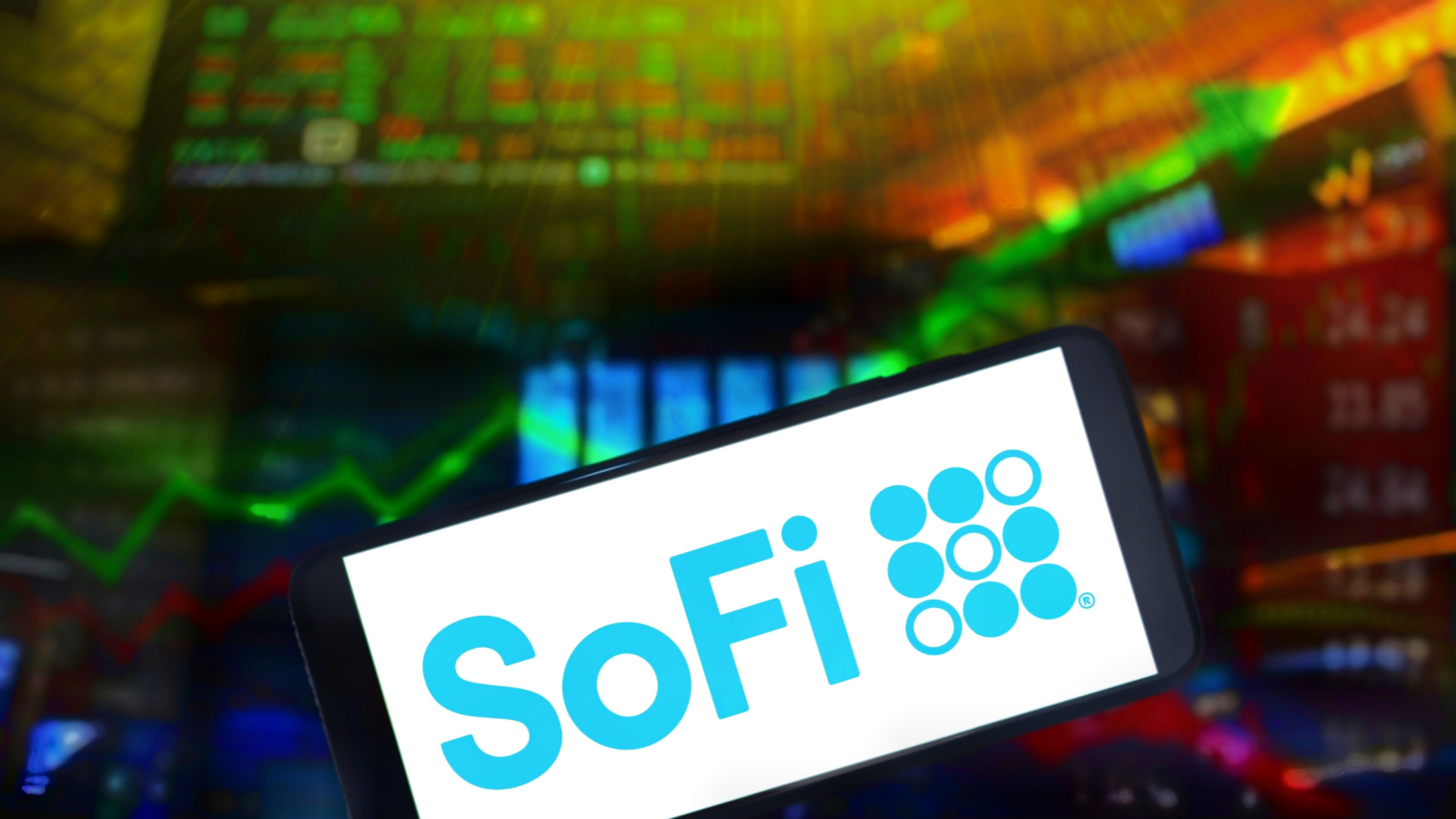Why Jim Cramer’s Right to Wait on SOFI Stock

CNBC’s Jim Cramer was asked about SoFi Technologies (NYSE:SOFI) in a mid-June episode of Mad Money. The veteran investor said he’d have to wait on SOFI stock.
“Right now, that last quarter was not great. I just didn’t like it. And I’m going to have to wait,” Benzinga reported Cramer’s comments on June 17.
I have to tell you, I’ve been bullish about the company for a long time — I most recently said it was the ultimate long-term winner on May 9 — but I can definitely understand Cramer’s thoughts about the fintech.
There is no other way to describe SOFI’s performance other than “disappointing” since going public through a SPAC merger in June 2021. From the beginning of 2022, it’s traded between $5 and $10, a long way from $23 where it traded in late 2021.
Honestly, with 156 stocks hitting 52-week lows compared to 68 hitting 52-week highs as I write this near the end of June, I think he’s right.
Now is not the time to go out on a limb. Here’s why.
What Was So Bad About Q1 2024?
Before getting into some points Cramer might have used from the first quarter report to steer clear of SOFI stock, a recent exit by SoFi’s fourth-largest investor suggests institutions are losing their patience with the company and CEO Anthony Noto.
InvestorPlace’s Eddie Pan reported on June 14 the Qatar Investment Authority (QIA) selling all 19.84 million shares it held in SoFi. According to my colleague, QIA invested $500 million in SoFi in 2019.
Since then, it generated proceeds of approximately $101 million from the sale of 4.68 million shares in November 2021, and $135 million from the June 13 sale that closed out its holdings in the fintech.
If that’s on the up-and-up, QIA lost $264 million from its four-to-five-year investment. You don’t do that because you’ve found a better investment. You do that because your patience has run out.
I believe investors sell for all kinds of reasons, but this is too much of a loss to be a simple reallocation of capital. Investors should heed this event. It’s out of the ordinary, in my opinion.
First Quarter Issue #1
SoFi’s personal loan originations in the first quarter were $3.28 billion, 11% higher than Q1 2023. However, the Substack blog Data Driven Investing had predicted personal loan originations of $3.65 billion. The company has chosen to slow personal lending until the macroeconomic picture becomes clearer.
“Growth in lending is on hold until the macro becomes more clear. That is a fact of SoFi for the near term, and when I say near term, it could mean all of 2024 and even into 2025,” Data Driven Investing wrote on May 1.
The investing site speculated that the bearish argument is that the regulators encouraged the company to seek excess capital as a buffer against any deterioration in the economy. The company and CEO Noto have said they could accelerate lending if they wanted to, but they don’t, so they won’t.
Unless the company or regulators come out and say this is the case, I would assume that Noto is on the level about its reasons for pausing personal lending growth.
However, the 2% decline in lending revenue is one issue that Cramer might have given him reason to wait.
First Quarter Issue #2
The second issue Cramer might have jumped on as a reason for waiting on the stock was the increase in the personal loan charge-off ratio. Although it was 3.45% in the quarter, 57 basis points lower than Q4 2023, it was much higher if you take into account the $62.5 million in late-stage delinquent personal loans in the quarter.
“Management certainly seems confident in its personal loan credit performance, but we are concerned about the implied >5.0% net charge-off rate in Q1 as we believe deteriorating credit trends would provide the worst negative impact to SOFI’s capital/earnings/ valuation,” Keefe, Bruyette & Woods analyst Timothy Switzer’s said, according to Barron’s.
So, from this weakened perspective, SoFi holding off on personal lending growth makes sense to ensure the delinquencies don’t get out of control.
Switzer also said the company needed more growth over the remainder of 2024 to justify its lofty valuation. That’s going to be tough given its other two segments: Technology Platform and Financial Services, generated just 15% and 23% of its $645 million in revenue, respectively.
As SoFi’s Lending business goes, so goes the company. I believe these two segments will become bigger contributors to revenue in the future, but it’s understandable that some investors like Cramer are waiting to see how everything shakes out.
While I’m still bullish about its long-term future, if you own SOFI stock already, I’d wait for more information before buying more. If you don’t, there are better options in the near term.
SOFI stock is a Hold for the time being.
On the date of publication, Will Ashworth did not have (either directly or indirectly) any positions in the securities mentioned in this article. The opinions expressed in this article are those of the writer, subject to the InvestorPlace.com Publishing Guidelines.









